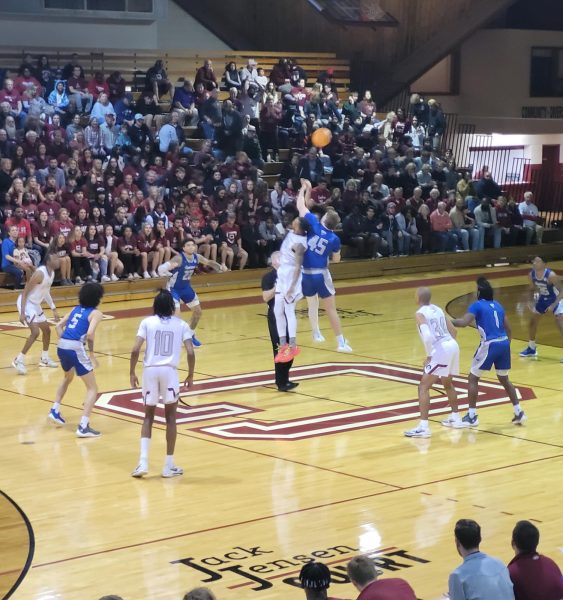The cancellation of Spring Break leaves students and faculty exhausted
As we approach the one-year anniversary of COVID-19 forcing schools nationwide to go online, the Guilford community is exhausted. While this week would have been our spring break, classes are still trudging on uninterrupted.
There’s no question that the pandemic has created unique stress for college students and professors, so when a break is removed from an already more difficult year, not many members of the community are happy.
“I’m not able to learn as much as I previously would’ve if it weren’t online, which obviously, I understand, but it’s just really stressful considering our minds and mental health don’t get a rest,” said Guilford junior Casey Bunting.
Online classes aren’t just overwhelming because they’re new, but changes in teaching styles have been hard to become accustomed to as well.
“I feel like the professors may give you more work because they think… if you’re not paying attention the homework is going to make up for it,” says Bunting. “But since we don’t have a break or a week without any of that work, our minds just aren’t getting a chance to rest and recuperate.”
Bunting emphasized the fact that with increased workloads and less support, it can feel like there’s no real division between time to get work done and free time.
Guilford Chemistry Professor Gail Webster agreed that her students and fellow faculty are noticeably fatigued.
“This semester, I’m dragging, I know I am,” Webster said.
Professors, like students, have to balance difficult situations and new stressors due to the pandemic. Planning classes, grading extra assignments and trying to provide resources for students is overwhelming.
“I had hoped they were going to put some days interspersed in the semester to give us a little bit of a break now and then, and a lot of other colleges are doing that, and Guilford didn’t,” said Webster.
UNC Chapel Hill has opted to give their students several “wellness days,” two or three days off in the middle of a week. According to UNC’s Daily Tar Heel, students have been grateful for these days and used them as a much needed time to focus on taking care of themselves. If these short breaks benefitted students, why has Guilford not opted for something of this nature?
“We had to make the decision early,” said Director of Public Safety Jermaine Thomas, regarding the process of canceling break. “So, on the task force level, we had a discussion about it. Within that task force we had the instructional working group who initially thought about it—the dean’s office and the provost—and we talked about it in (the) Health and Safety (task force).”
“Then, we went to our external partners—that’s UNC Greensboro, Greensboro College, Elon University, and High Point University—just to see what everyone else was doing,” Thomas continued.
According to Thomas, the decision was made late in the fall semester, right before the academic calendar had to be published. This decision was also notably made at a time when the U.S. was setting record numbers of new cases each day.
“The prediction all the way through the fall semester was that during the wintertime, cases would rise… because of increased gatherings for holidays like New Year’s Eve, Christmas… It falls in line with when we had our one big surge in cases,” said Thomas.
This surge refers to the week when Guilford had 32 positive tests for COVID-19, increasing the College’s positivity rate to 11 percent. The rise in positive test results was attributed to community spread that occurred following travel after New Year’s. This cluster of cases lined up the Health and Safety Task Force’s assumptions about positive tests that may have occurred if spring break were to have taken place.
“When we originally put up all the policies, the goal was to limit travel as much as possible and try to stay on campus,” Thomas said.
“I would probably go home and come back for a little bit to play softball,” said Bunting when asked about what she would’ve done with her break.
For Bunting, home is Wilson, NC, so she would only have to make an in-state trip. She revealed that for many Guilford students, seeing their families and being at home during breaks can provide a much-needed opportunity to step back from a stressful environment on campus.
Even if students did not have enough time to travel, a short break would still be enthusiastically received by students and faculty alike. As fatigue becomes apparent in the community, the College has an opportunity to be responsive to the needs of its constituents, and present an alternative to spring break this year.









